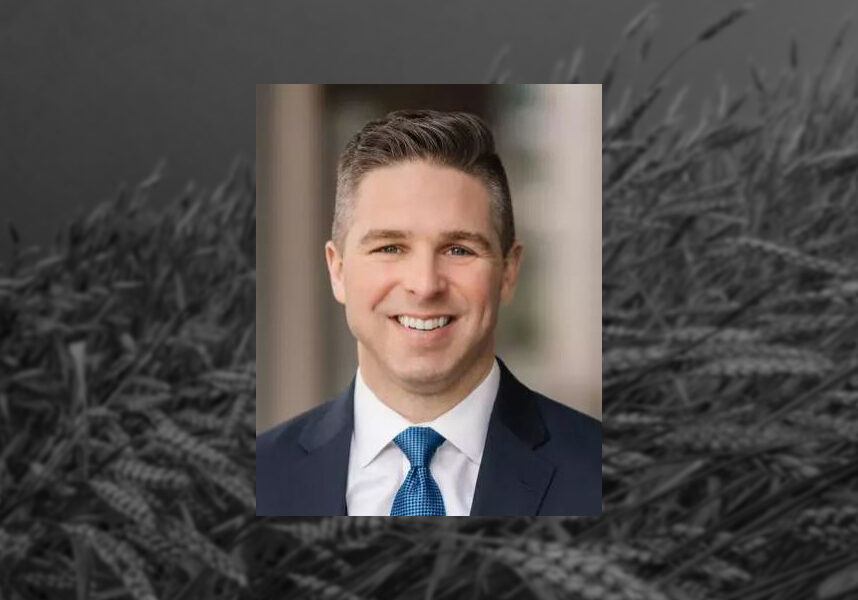
While it may be hard to find the bright side of rising interest rates — just ask a Washington wheat farmer who’s already dealing with high input costs — there are investment opportunities to be found.
According to Jordan Thayer, a financial advisor with Morgan Stanley, banks may charge more for loans, but they will also raise the interest rates they pay on savings accounts in order to appeal to new customers and to keep existing customers. Additionally, Certificates of Deposit (CDs), Treasury bills and bonds are all paying higher interest rates than they were just a couple of years ago. For growers who are looking for a relatively safe place to park some money, rising interest rates are presenting some opportunities.
“Growers can consider these as options as they transition into retirement,” Thayer said. “Whether they pass on the farm to the next generation or sell land and assets, they can put the proceeds into a variety of investments that pay them a decent interest rate in return.”
CDs benefit from being insured by the Federal Depositor’s Insurance Corporation, up to $250,000 for individual accounts and $500,000 for joint accounts. However, growers need to consider how long they want to hold the CD. For example, if a grower purchases a 10-month CD, they need to be prepared to leave the money in that CD for the full 10 months in order to get all of the interest earned. There are usually penalties if the money is withdrawn before the term of the CD is over. More information about CDs can be found at fdic.gov/resources/deposit-insurance/understanding-deposit-insurance/.
Another investment option is Treasury bills. A Treasury bill is a short-term, U.S. government debt obligation backed by the Treasury Department that matures back into cash in one year or less. Treasury bills help fund short-term government operations. While not appropriate for everyone, a Treasury bill is a conservative way to earn interest on conservative spending cash that isn’t needed within a year. Once a Treasury bill is purchased, the cash is no longer liquid and needs to sit in the Treasury bill until it “matures” back to cash.
As Thayer explained, when growers transition into retirement, they’ll need liquid cash to pay their bills (a short-term bucket); money invested for expenses expected in the next one to five years (a medium-term bucket); and money that can continue to grow over a five-year period and beyond (a long-term bucket). He considers stock and land investments to be long-term investments as their value tends to appreciate over time. Treasury bills should be considered a short- or medium-term investment.
“There are several benefits of Treasury bills,” Thayer said. “They come with a government guarantee of repayment at the maturity date, and interest rates are much more worth considering than they were just a few years ago. There are negatives as well, including short-term price fluctuations that may affect the amount you receive if you try to sell it early.”
More information about Treasury bills is at treasurydirect.gov/marketable-securities/buying-a-marketable-security/. Treasury bills can be purchased directly from the U.S. Treasury. Thayer said it’s a bit of a process (you have to open an account and participate in the auctions), but it’s a direct method of buying them from the government.
Growers can also open an account at an online brokerage and purchase Treasury bills for a small commission. Buying Treasury bills through a broker or financial advisor also incurs a small commission. Ideally, a grower is purchasing them through an advisor as part of a larger financial plan and investment portfolio. Typically, financial advisors have access to the full market of Treasury-issued securities and can find many different kinds to fit the desired timeline and dividend rate.
Growers who are interested in taking advantage of high interest rates should consult with a trusted financial advisor. Everyone’s situation is different, and it’s important that an advisor understands your unique circumstances and concerns and suggests investments that accommodate them. CDs and Treasury bills are basic investments, but applying them properly in the context of one’s retirement plan requires balancing several factors, including risk, timelines and economic conditions.
“You want to ensure an advisor you consult adheres to your best interests, meaning they legally put your interests above their own,” Thayer said.
Jordan Thayer is a financial advisor with the Global Wealth Management Division of Morgan Stanley in Seattle, Wash. The information contained in this article is not a solicitation to purchase or sell investments. Any information presented is general in nature and not intended to provide individually tailored investment advice. The strategies and/or investments referenced may not be appropriate for all investors as the appropriateness of a particular investment or strategy will depend on an investor’s individual circumstances and objectives.
CRC 5639090 04/2023












